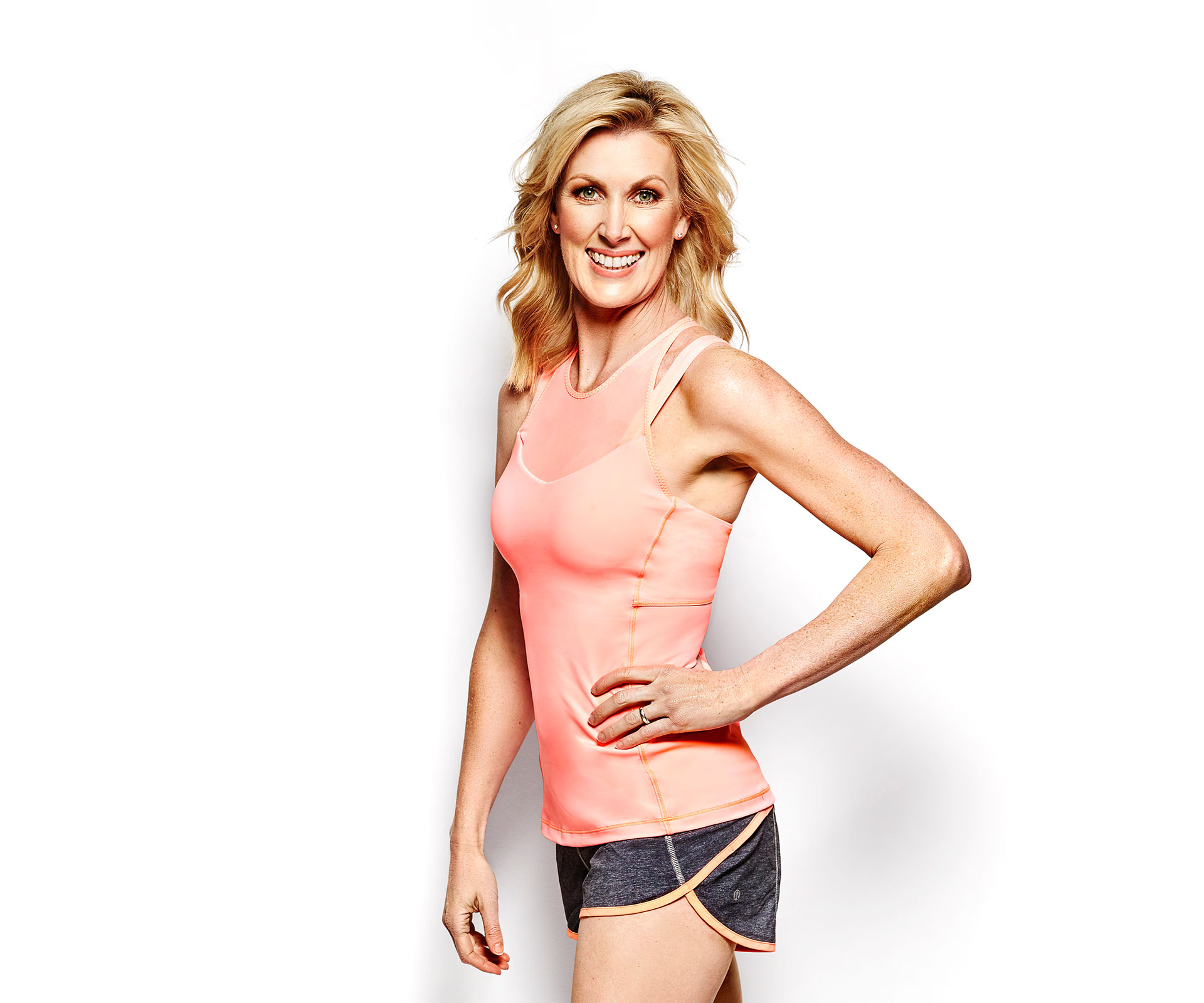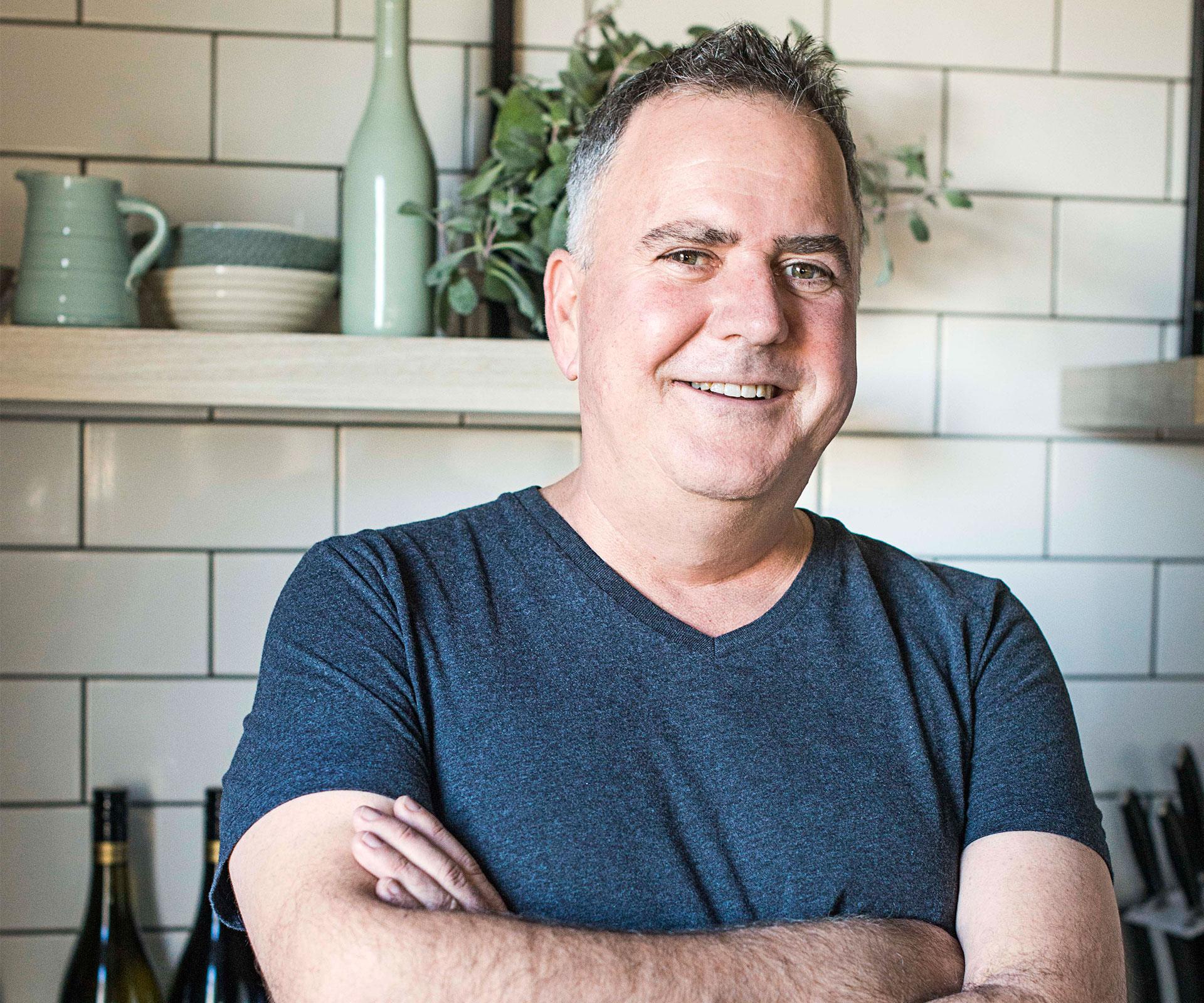It is safe to say Rachel Smalley likes a challenge. The early morning Newstalk ZB radio host will be running her first ever marathon in November – but it’s where she’s doing it that makes a difference. Rachel and a team of runners from New Zealand are heading to Beirut, the capital of Lebanon, to run the marathon and also visit the refugee camps that border war-torn Syria. It’s a part of the world Rachel knows well, thanks to her work with World Vision. She’s been in the area on and off for a lot of 2015, due to her work on the Forgotten Millions campaign, raising awareness of the millions displaced by the crisis. She talks to us about staying sane in a war zone, her busy schedule and training for a marathon in her 40s.
Q. When did you discover you loved running?
A. I was a sporty kid, but I only got into running when I left television in 2013. When I started, I was living that classic lifestyle: coffee, coffee, coffee to get me up, wine, wine, wine to bring me down. My diet was all over the place. When I started running, I could barely do two lamp posts and then I’d have to walk. But slowly and surely I built it up, and I reached a level of fitness where I was addicted to the endorphins. I still am. I love the feeling after a run, where your skin is flushed, you feel great, and you have a sense of achievement.
Q. When did it stop being a chore and start becoming something you enjoyed?
A. I got up to 10km but I couldn’t get past that. I was exhausted, and I couldn’t understand how I was ever going to run for longer. So I went to see Gaz Brown at Get Running, and he said, “You run too fast. You’re running in an anaerobic state and not an aerobic state.” The penny dropped the minute he said that. What fascinates me is the science to running, and that’s what I’ve really got into. Looking at heart rates, looking at run speeds, training patterns. I run four days a week to a time: 1.5 hours, or two hours. When you first start running, you tend to think you can just throw on your shoes and off you go, but actually, if you want longevity, you have to think about how it all works and the impact on your body.
Q. How is your body feeling now?
A. I realise now the importance of stretching, of recovery, of strengthening parts of my body, particularly at my age – I’m 43. Trying to get my body to adapt to what I’m asking it to do is the biggest challenge. That, and getting enough sleep. My sports masseuse said to me, “The biggest issue is you don’t get enough sleep, because of the hours that you work.” Sleep is when your body mends. So for me, Beirut will be as much about getting the rest I need as it will be about the training.
Q. What’s your schedule like at the moment?
A. My alarm goes off at 2.30am. I’m at work by 3.30am, and then I’m off air at 6am. I’ll have a meeting, and then I go out and run or train. I’ll have another meeting around 9-9.30am and other bits and pieces, and then from about 3pm I’m back online, prepping for the next day. I probably do about four hours and in the meantime I pick up my son, Finn, and organise dinner. I don’t really get to bed before 8.30pm. On a very good night I’ll get five hours’ sleep. But normally it’s about four to five. Sometimes I’ll try to catnap in the middle of the day. I’m not averse to collapsing the car seat (I have a blanket in the car!) and sleeping for 45 minutes. The running helps. If I wasn’t running, I’d be in a lot of trouble.
Q. Your World Vision work takes you to some dangerous places, where you see a lot of disturbing things. How do you look after your mental health?
A. It affects you deeply, when you go into the refugee camps. I was having a coffee on [Auckland’s] Ponsonby Road and then 48 hours later I was arriving in Iraq. That’s crazy in itself. I guess in an ideal world, I’d have a thicker skin. But I don’t necessarily want to. When I’m in the Middle East, I do cry. I do disappear outside the tent. When there’s a little child who’s lost a parent, or a mother talking to me about her little baby and her fears she doesn’t have enough milk, all of that is deeply troubling and it does affect me.
Q. Why did you decide to do the Beirut marathon?
A. I wanted to take a group of Kiwis over there, into the refugee camps, and then 48 hours later run the Beirut marathon. I’m taking a large group of people over, mostly women, all of whom want to run, want to fundraise, and want to see for themselves what’s going on over there. The fact there are people who want to come with me and want to help, that’s the greatest gift of all, really. And the marathon looks great – Beirut is a fantastic city – once called the ‘Paris of the Middle East’ – and the Lebanese are just extraordinary. It ticked a lot of boxes.

Rachel wears Country Road tank, Lululemon pants and Nike sweatbands from Rebel Sports.
Q. Did you ever think when you were younger you would sign up to run a marathon?
A. I always said I’d run a marathon and I always said I’d do it before I was 40, so I’m four years too late – I arrive in Beirut on my 44th birthday. It was always on the wishlist, for sure. But I remember when I did my first half-marathon, crossing the line in Queenstown and going, “I don’t need to run more than that. That was nuts.” But for some reason I’ve forgotten that now!
Q. There are often a lot of women in their 30s and 40s doing these events – why do you think that is?
A. I don’t know but it’s a curious phenomenon. A lot of women do it for the camaraderie. There are so many women who say, “I could never run a half-marathon.” But the thing is, everyone’s got a half-marathon in them. And the sense of satisfaction and exhilaration you get when you cross the finish line is remarkable. In the first few months of training, it’s tough. My only advice would be to seek out a running guide, get a heart monitor, and understand you have to start very slowly – like a shuffle – and go from there. The number of people I’ve seen who, after never doing anything athletic their whole lives, in their 30s and 40s go, “Right. I’m going to run 21km this year!”, is amazing.
Q. How has your relationship with your body changed now you’re in your 40s and after having a child?
A. My body now is the strongest it’s ever been and I’m proud of that – I’ve worked hard at it. When you have a baby, what no one really tells you is how weak your core becomes and how reliant you are on having a strong core for everything in life. Everything’s harder – and we’re talking two or three years after having a baby. Running and some of the work I’ve done at the gym have really strengthened my core and I love that feeling. I don’t ever want to go back to feeling weak. As you get older, and you get fit, your figure becomes a little more masculine. And I’ve had to get to grips with that. If I wasn’t fit, and carried a bit more weight, I’d probably look a bit more feminine. But I love the feeling of being strong. When you feel strong and fit, you feel any challenges life throws up are a little easier to tackle.
Rachel’s ode to the morning run:
I’m quite blessed, because the crazy hours I work allow me to run at about 6am. I come straight off air and then I run. Sometimes I’ll be running around Auckland, when the ports are starting up and people are beginning to head into town. I’ll be running along Tamaki Drive, watching the sun come up. People are wrapped up for early morning coffees, the smell of bacon is in the air. I love mornings. The country’s waking up, there’s such a buzz: “What’s going to happen today?”
Words by: Emma Clifton
Photos: Mike Rooke, Bauer Media


